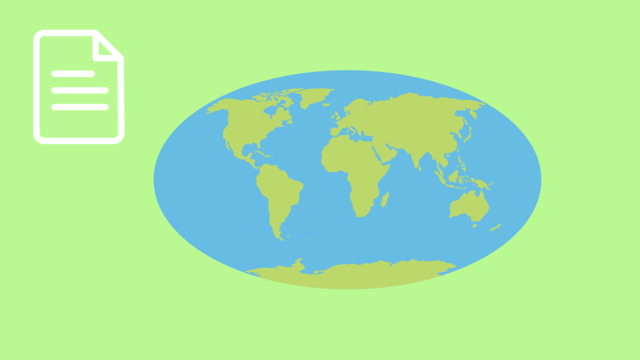How Can We Protect Our Water?
- How Can We Protect Our Water? – Introduction
- What is Water Conservation?
- Key Concepts in Water Conservation
- Importance of Water Conservation
Learning text on the topic How Can We Protect Our Water?
How Can We Protect Our Water? – Introduction
Have you ever thought about how we can conserve water to help the planet? Water is essential for all life on Earth. All plants, animals and humans need water to survive. However, water is a limited resource, and it's important for us to take steps to protect and conserve it. In this text, we'll learn about why water conservation is necessary and discover practical ways we can save water every day.
What is Water Conservation?
Water conservation involves using our water supply wisely and responsibly.
Water conservation refers to the careful management and use of our water resources to ensure they last for future generations. It involves strategies and practices that aim to use water efficiently, reduce wastage and protect the quality of water.
Key Concepts in Water Conservation
Water Sustainability: This concept focuses on maintaining a stable water supply that can meet the current and future needs of all life forms—humans, animals and plants. It's about balancing human needs with environmental health to ensure that water remains available and accessible for all.
Water Efficiency: Water efficiency is about maximising the effectiveness of water use. It means using less water to perform the same tasks, thereby reducing overall consumption. Examples include installing water-saving devices in homes and industries, and adopting water-efficient practices in agriculture.
Importance of Water Conservation
Water conservation is crucial for several reasons:
- Ensures Availability: By using water wisely, we can ensure that sufficient water is available for various needs, including drinking, agriculture and industry.
- Protects the Environment: Efficient water use helps maintain the natural landscapes, wetlands and rivers, which are vital for biodiversity and ecological balance.
- Reduces Energy Use: Water treatment and distribution consume significant amounts of energy. Using less water reduces the energy needed for these processes, which in turn helps in reducing overall carbon emissions.
- Economic Benefits: Effective water management can lead to substantial cost savings for individuals, communities and governments through reduced water and energy bills.
By understanding and implementing water conservation practices, we can ensure the sustainability of this essential resource, contributing to a healthier planet and a secure future for all species.
Why is Saving Water Important?
Saving water helps prevent shortages, which can happen during dry times like droughts. It also helps keep our rivers, lakes and oceans healthy. When we use less water, less water gets taken from these natural places.
Water management involves plans and actions to use water wisely. Water preservation means protecting water from pollution and overuse.
Let’s look at some simple ways to save water at home:
- Turning off the tap while brushing your teeth
- Fixing leaks in taps and toilets
- Using a watering can filled up with water from a water butt instead of a hose for your plants
How to Save Water
There are many water-saving techniques and devices that help reduce how much water we use:
| Water-Saving Device | How It Helps |
|---|---|
| Low-flow showerheads | Uses less water for showers |
| Dual-flush toilets | Uses less water to flush waste |
| Drip irrigation | Delivers water directly to plants |
| Faucet aerators | Reduces water flow without reducing pressure |
| Water-efficient dishwashers | Uses less water and energy per cycle |
| Water butts | Collects rainwater for outdoor watering needs |
These devices are designed to be more water-efficient. This means they do their job without wasting any water.
Impact of Water Conservation on Our Planet
Water conservation is vital not only for saving water, but also for supporting sustainable environmental and social practices globally.
Benefits for the Environment
Water conservation plays a crucial role in protecting our natural resources and habitats:
- Preserves Aquatic Ecosystems: By reducing the amount of water withdrawn from rivers, lakes and aquifers, we help maintain the ecological balance. This supports biodiversity as aquatic and terrestrial wildlife rely on these water sources for survival.
- Mitigates the Effects of Droughts and Water Scarcity: Conserving water means that more of it remains in the environment, which can be crucial during periods of drought. Maintaining higher water levels in natural reservoirs can help mitigate the impact of droughts on ecosystems and human communities.
Benefits for People
The advantages of water conservation extend beyond environmental health to include significant societal benefits:
- Energy Savings: Water conservation reduces the demand for water treatment and distribution, which are energy-intensive processes. By using less water, we decrease the energy required to pump, heat and treat water, leading to lower energy consumption and reduced greenhouse gas emissions.
- Cost Reduction: Lower water usage results in reduced utility bills for households and decreased operational costs for water utilities. This economic saving can be significant over time, making water conservation beneficial not only ecologically but also economically.
- Improved Public Health: Reduced demand on water resources can lead to improved water quality, as there is less likelihood of pollution concentrations reaching harmful levels. Better water quality directly impacts public health, reducing the risks associated with water-borne diseases.
Through these widespread benefits, water conservation supports a sustainable future for both our planet and its inhabitants, ensuring that we can meet our current needs without compromising the ability of future generations to meet theirs.
How We Can Make a Difference
Every drop counts when it comes to water conservation. Let’s see if you can think of solutions to the following scenarios:
Water Conservation Science Experiment
Let's do a simple experiment to see how different methods can save water!
Test Your Water Conservation Knowledge
Test your knowledge about water conservation with this quick quiz!
Water Conservation –Summary
Key Learnings from this Text:
- Water conservation is crucial for ensuring that everyone has enough clean water.
- Using water efficiently helps protect the environment and saves energy.
- Simple actions like fixing leaks and using water-saving devices can make a big difference.
- There are many water efficiency devices you can use to conserve water.
| Water-Saving Device | How It Helps |
|---|---|
| Low-flow showerheads | Uses less water for showers |
| Dual-flush toilets | Uses less water to flush waste |
| Drip irrigation | Delivers water directly to plants |
| Faucet aerators | Reduces water flow without reducing pressure |
| Water-efficient dishwashers | Uses less water and energy per cycle |
| Water butts | Collects rainwater for outdoor watering needs |
Now that you know about water conservation, you can start making changes at home and help protect this precious resource! If you enjoyed learning about protecting resources and the planet, then check out the learning texts on How Can We Protect Our Air?, How Can We Protect Our Plants? and How Can We Protect Our Animals?
 Do you want to learn faster and more easily?
Do you want to learn faster and more easily?

















